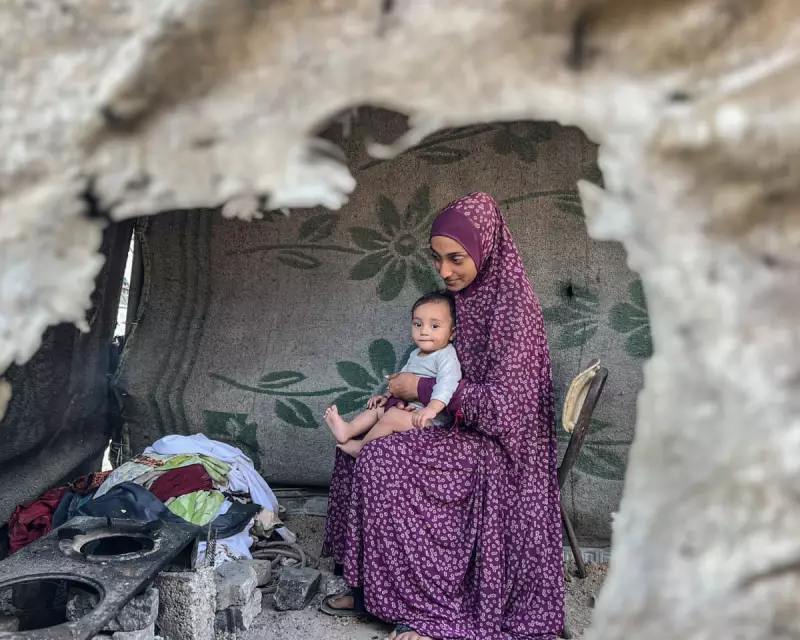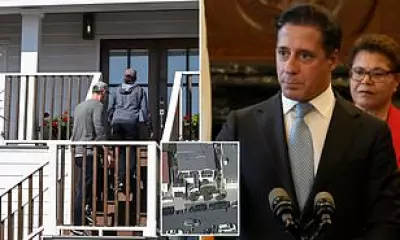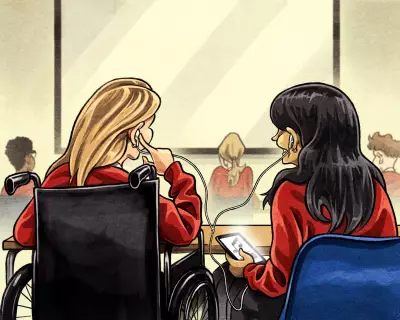
Gaza's Humanitarian Crisis Deepens as Winter Approaches
Palestinian families in Gaza are facing increasingly desperate conditions as winter approaches, with many still living in temporary shelters offering scant protection from the elements. The situation has become particularly acute in camps like Nuseirat, where basic necessities remain in critically short supply.
Catastrophic Drop in Donations
Fundraisers supporting Palestinian civilians are reporting what they describe as a catastrophic decline in donations since the ceasefire announcement in October. Organisers of volunteer initiatives say collecting money for families struggling with illness, hunger and malnutrition has become significantly more difficult.
Megan Hall, an Australian-based organiser who runs 95 mutual aid funds for individual families in Gaza, has witnessed this dramatic shift firsthand. Since February 2024, she has raised more than $200,000 (£152,700) through social media campaigns, but donations have virtually collapsed since the ceasefire took effect.
During the conflict, Hall consistently sent about $5,000 weekly to people in Gaza. However, for the entire month of October, she raised just over $2,000 across all her campaigns.
The world seems to think Palestinians don't need help any more with the so-called ceasefire, Hall told the Guardian. Mutual aid has kept people alive for two years. Now, heading into winter after multiple displacements, many lack even basic winter clothing or blankets.
Widespread Impact Across Aid Organisations
Four other mutual aid fund organisers confirmed similar sharp declines in their campaigns over the past month. Unlike mainstream humanitarian organisations with large donor bases, these mutual aid funds rely entirely on small donations amplified through social media.
Even established nonprofit organisations are feeling the impact. Gaza Soup Kitchen, which has raised more than $5.8 million on GoFundMe since February 2024 and serves 10,000 daily meals, saw donations drop by 51% from September to October.
Hani Almadhoun, the charity's co-founder, expressed concern about long-term sustainability while emphasising their commitment to continue current operations.
Larger organisations like Oxfam and Save the Children UK are also reporting significant declines. Save the Children UK noted that donations from social media marketing have decreased by a third, creating what Alison Griffin described as a self-perpetuating cycle where reduced media coverage makes marketing less cost-effective.
Desperate Reality for Gaza Families
The funding crisis comes amid what humanitarian agencies describe as an increasingly dire situation on the ground. According to a SARI Global assessment cited by the World Health Organization, more than 70% of Gaza's population - nearly 1.9 million people - live in areas exposed to rain, strong winds and coastal surges with no functioning infrastructure.
A spokesperson for the UN Office for the Coordination of Humanitarian Affairs (OCHA) highlighted the complete degradation of coping mechanisms after two years of displacement and destruction of agricultural land and livestock.
The ceasefire means it's quieter in terms of bombs falling on people's heads, the spokesperson said. It doesn't mean that overnight people's lives became wonderful because most of Gaza is completely destroyed.
Ahmed al-Deeb, 28, from Gaza City, exemplifies the human impact. His extended family of 14, including his sick two-year-old niece, depends entirely on a mutual aid fund established by Hall six months ago.
While the fund raised about $6,500 total, with nearly $3,000 in September alone, October saw only $300 and November has brought just over $150 so far.
After being displaced to Deir al-Balah during Israel's ground invasion of Gaza City in September, Deeb paid $300 monthly for a tent on land shared with ten other families. Fearing winter conditions, he returned to Gaza City and found a bomb-damaged apartment but now faces $400 monthly rent he cannot afford.
I cannot even start describing to you how bad it is, Deeb said. If I don't pay, the landlord will evict me.
Multiple Factors Behind Funding Collapse
Fundraisers attribute the donation decline primarily to public perception that Palestinian suffering has ended with the ceasefire. However, Hall identifies additional factors, including donor fatigue after two years of continuous giving and the financial strain of evacuating people from Gaza City in September.
Hall has resorted to selling her furniture to cover one family's rent, while other organisers point to broader economic pressures affecting donors in countries like the US and UK, where cost-of-living crises are taking their toll.
Paul Biggar, chief executive of Tech for Palestine, also highlighted algorithmic biases by social media companies like Meta that make it difficult for pro-Palestinian content to reach beyond existing advocacy circles.
As another uncertain winter arrives for Gaza's 2 million residents, families like Deeb's face imminent homelessness if they cannot secure basic shelter. With his first rent payment due soon and donations virtually nonexistent, the ceasefire has brought little relief to those struggling for survival.






